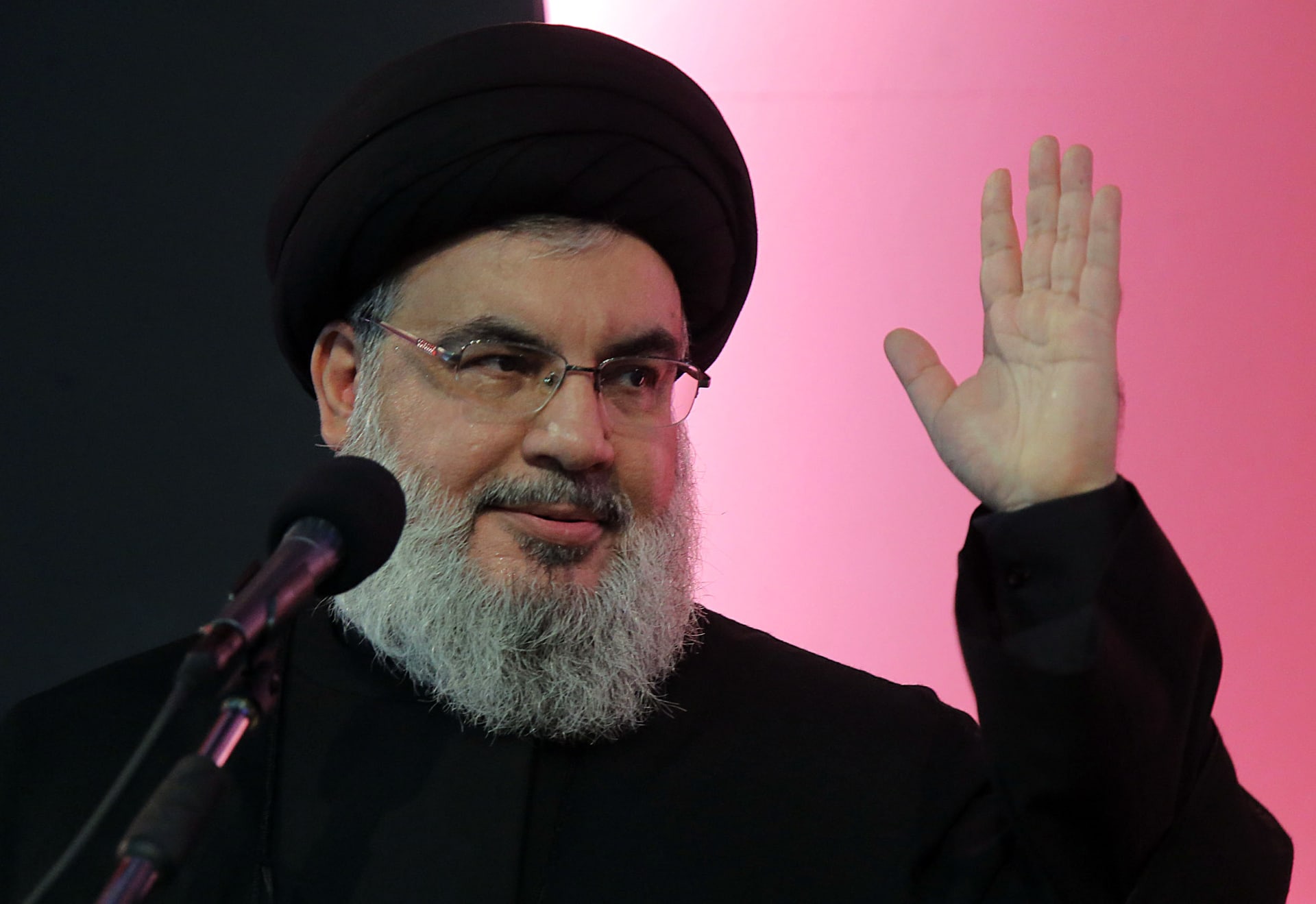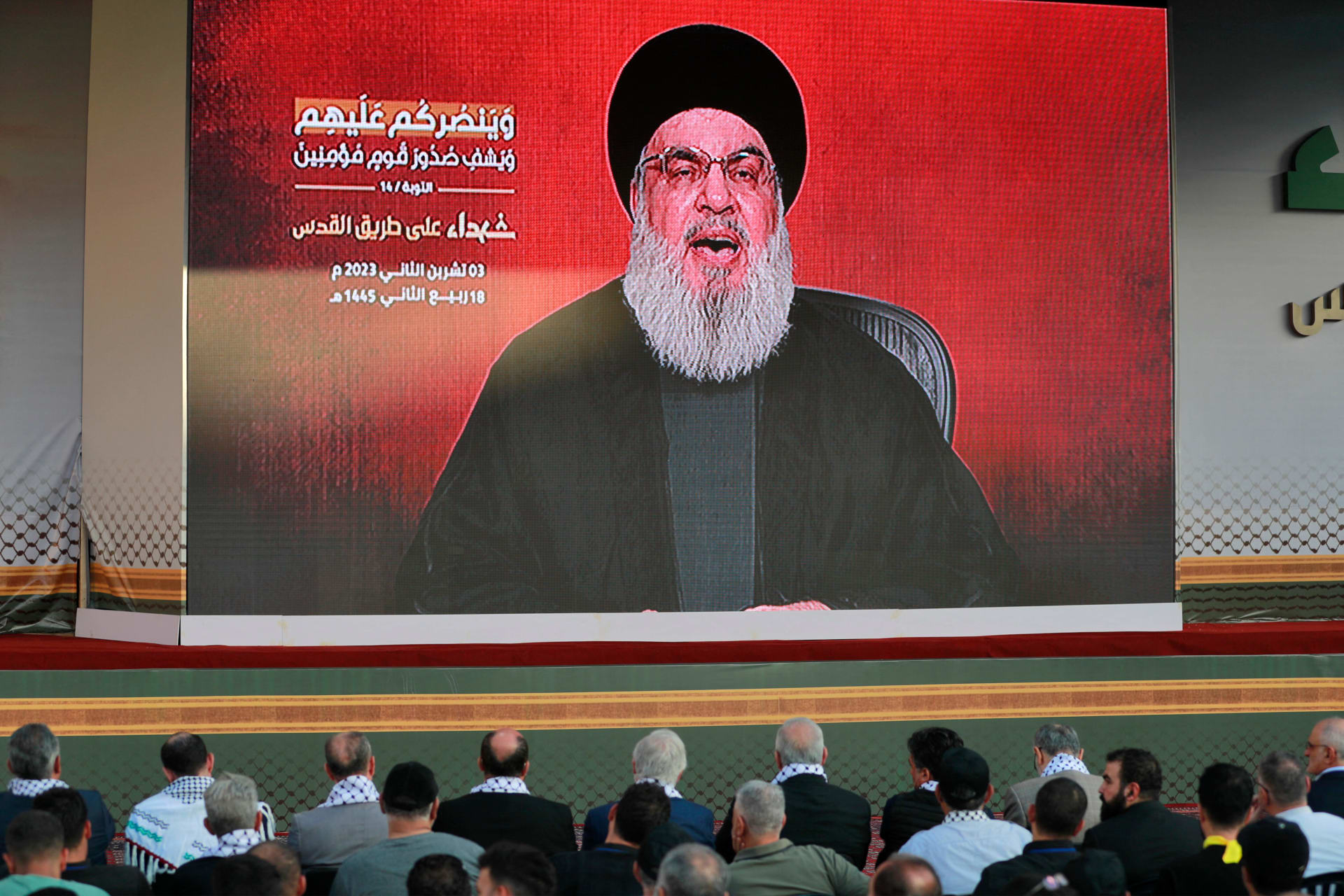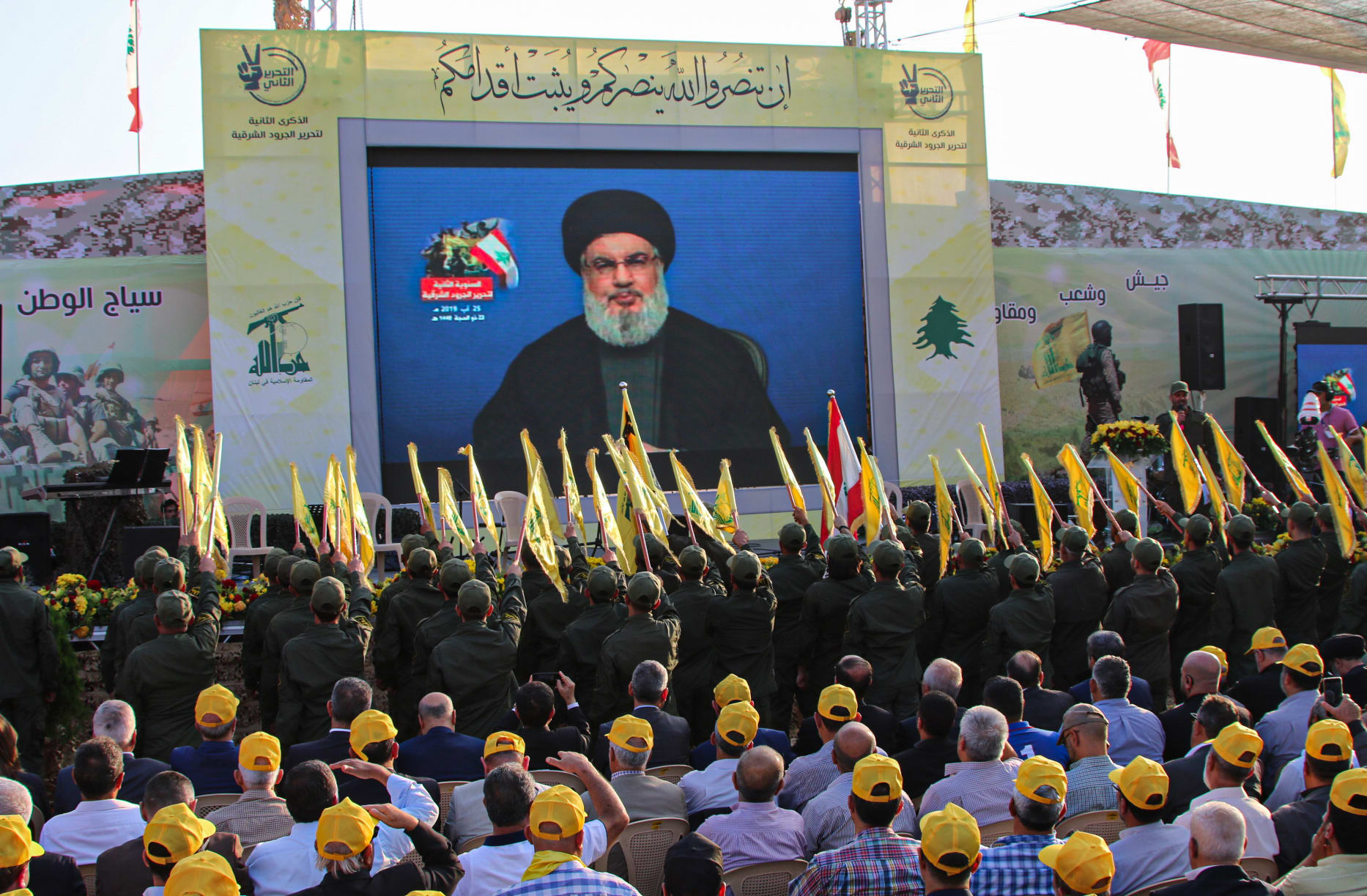حسن نصر الله
حسن نصر الله - A Look at His Life and Influence
The news of Sayyed Hassan Nasrallah's passing, a figure who truly shaped the political landscape in Lebanon and beyond, has, you know, really captured attention across the globe. For many, his death marks the close of a very significant period, bringing about feelings of both sorrow and, for some, a sense of relief. It's a moment that, in some respects, invites us to think about the lasting impact someone can have on history and the varied ways people see such a prominent person.
He served as the third leader of Hezbollah, a role he took on back in February 1992. This happened after his predecessor, Sayyed Abbas al-Musawi, was killed. He held this important position for a long, long time, right up until his own death in 2024. His time at the helm, you know, saw the group grow and change quite a bit, becoming a force that many people watched closely.
His journey, from humble beginnings to leading a powerful group, is, in a way, a story that shows just how much one person can affect events around them. People held very different opinions of him, seeing him as either a champion of resistance or, conversely, as someone who caused trouble. This wide range of views, actually, really highlights the complex nature of his role and the times he lived through.
Table of Contents
- 1. Early Life and Background
- 2. How Did He Become a Leader?
- 3. Personal Life of حسن نصر الله
- 4. What Was His Role in Hezbollah?
- 5. The Years of Leadership
- 6. What Happened in His Final Days?
- 7. How Was He Seen by Others?
- 8. A Public Figure's Impact
1. Early Life and Background
Hassan Nasrallah, born on August 31, 1960, in a place called Burj Hammoud, which is a part of Beirut, had beginnings that were, you know, pretty modest. His father made a living selling vegetables, a simple occupation that, in a way, grounded young Hassan in the everyday life of his community. He came from a Shia family, and this background would, of course, play a big part in his later life and choices. His early years were spent in an environment that was, well, shaped by the social and political movements of the time, even if he was just a child then.
The Beginnings of حسن نصر الله
His school days ended in a town called Tyre, a coastal city with a long history. It was during this time, apparently, that he took his first steps into the world of organized groups. He joined the Amal Movement, a significant Shia political and military group in Lebanon back then, when he was just fifteen years old. This was, you know, a pretty early age to get involved in such a serious way, but it shows a certain kind of drive and focus even then. The Amal Movement, founded by Musa al-Sadr, was a powerful and active group, and joining it at such a young age really set the stage for his future path. He also spent about two years studying in Najaf, Iraq, which, as a matter of fact, is a very important center for Shia learning, adding to his religious education and shaping his views.
2. How Did He Become a Leader?
The path to becoming a top figure in a group like Hezbollah isn't, you know, a simple one, and for Hassan Nasrallah, it involved a mix of religious study, political involvement, and, well, a bit of fate. His early connection with the Amal Movement gave him a practical grounding in Lebanese politics and the dynamics of armed groups. This experience, combined with his religious schooling, put him in a position to rise through the ranks. It's almost as if his earlier experiences were preparing him for the big role he would eventually take on. He was, in a way, always learning and adapting, which probably helped him quite a bit.
حسن نصر الله's Path to Power
He took over as the third Secretary-General of Hezbollah on February 16, 1992. This happened after the previous leader, Sayyed Abbas al-Musawi, was killed by Israel. This sudden change, of course, thrust Nasrallah into a very demanding leadership role at a relatively young age. He had to step up and guide the organization during a really sensitive time, and he did so for over three decades. His rise to this position, as a matter of fact, was quite quick, especially considering his background as the son of a vegetable seller. This quick ascent and his ability to expand the group's popular support base in a short time really showed his skills as a leader. He was, you know, able to connect with people and rally them to his cause.
3. Personal Life of حسن نصر الله
Beyond his public persona and political duties, Hassan Nasrallah also had a private life, a family that, you know, stood by him. He was married to Fatima Yassin, whose family came from a village called Al-Abbasiyah. Together, they built a family with five children. It's often easy to forget that public figures have personal stories, too, and his family life was, in a way, a significant part of his world. This part of his life, you know, gives us a slightly different look at the man behind the headlines.
Bio Data of حسن نصر الله
| Full Name | Sayyed Hassan Abdul Karim Nasrallah |
| Date of Birth | August 31, 1960 |
| Place of Birth | Burj Hammoud, Beirut |
| Date of Passing | September 27, 2024 |
| Spouse | Fatima Yassin |
| Children | Muhammad Jawad, Zainab, Muhammad Ali, Muhammad Mahdi, Muhammad Hadi (eldest son, deceased) |
| Religious Affiliation | Shia Islam |
| Political Role | Third Secretary-General of Hezbollah |
| Years in Leadership | 1992 - 2024 (32 years) |
His children included Muhammad Jawad, Zainab, Muhammad Ali, and Muhammad Mahdi. Sadly, his eldest son, Muhammad Hadi, lost his life in a battle with soldiers. This personal tragedy, you know, must have been incredibly difficult for him and his family. It's a reminder that even leaders face very personal losses and hardships, just like anyone else. This aspect of his life, honestly, shows a human side that isn't always visible when you only hear about political events. He was, after all, a father and a husband, too.
4. What Was His Role in Hezbollah?
As the Secretary-General, Hassan Nasrallah was, you know, the main person in charge of Hezbollah. His role went beyond just being a figurehead; he was deeply involved in guiding the group's political direction, its military actions, and its overall strategy. He took over at a critical time and, as a matter of fact, managed to steer the organization through many challenges over more than three decades. His leadership was, in some respects, key to how Hezbollah grew and changed during that long period. He was, basically, the voice and the mind behind many of its most important decisions.
حسن نصر الله and the Organization's Growth
Under his guidance, Hezbollah went through a remarkable transformation, becoming, you know, one of the strongest armed groups in the area and, indeed, across the globe. This growth wasn't just about military might; it also involved expanding its influence in Lebanese society and politics. He was, in a way, a master at building support and rallying people, which helped the group gain a wider base. His vision and direction, honestly, helped shape the group into what it became, a very significant player on the regional stage. He really, really worked to make it a force to be reckoned with.
5. The Years of Leadership
For 32 years, Hassan Nasrallah led Hezbollah, a period that saw many ups and downs, both for the group and for Lebanon. He was, you know, at the helm during times of conflict and times of relative calm, always working to advance the group's goals. His speeches were often watched very closely, as they would, of course, give clues about the group's next moves and its stance on various issues. He had a way of communicating that, you know, really resonated with his supporters, making him a powerful speaker. He was, in a way, a constant presence in the region's political conversations.
Guiding Hezbollah Under حسن نصر الله
One notable moment was when he gave a speech about the conflict in Gaza, where he laid out Hezbollah's position and how their actions would be tied to the war's progress. He also spoke about protecting Lebanon, which, you know, was always a core concern. This kind of public address was typical of his leadership style, where he would, in a way, directly communicate with his audience and lay out the group's plans. He was, basically, a very public leader, and his words carried a lot of weight. He really, really made sure his voice was heard.
6. What Happened in His Final Days?
The end of Hassan Nasrallah's long period of leadership came suddenly, marked by a military strike. On a Friday, an attack targeted a location in the southern suburbs of Beirut, and it was, you know, quickly followed by news reports. For a while, there was a lot of waiting and wondering about what had happened. People were, basically, on edge, trying to figure out the truth. This period of uncertainty, as a matter of fact, just added to the tension surrounding his fate. It was, in a way, a very dramatic conclusion to his life.
The End of an Era for حسن نصر الله
Hezbollah officially announced on a Saturday that their leader, Hassan Nasrallah, had indeed been killed in the strike. This confirmation, you know, brought an end to an era for the group and for the region. Before the official statement, Israeli media had already suggested that their security services had proof of his death. This whole sequence of events, honestly, unfolded quite quickly and dramatically. The news of his passing, you know, spread far and wide, bringing many reactions from people everywhere. Tens of thousands of people, both from within Lebanon and from outside, came together to take part in his funeral, showing just how many people he had touched.
7. How Was He Seen by Others?
Hassan Nasrallah was, you know, a figure who sparked very strong feelings, and people saw him in completely different ways. For those who admired him, he was considered a fighter for resistance, someone who stood up against what they saw as oppression. They viewed him as a leader who genuinely worked for his people and their cause. This perspective, honestly, highlights the deep loyalty and respect he commanded among his supporters. He was, in a way, a symbol of strength and defiance for many.
Different Views on حسن نصر الله
On the other hand, his opponents saw him as a terrorist, someone who used violence and caused instability. They rejected his influence on the Lebanese political scene and were, you know, quite critical of his group's power. This stark contrast in opinions, as a matter of fact, really shows the deeply divided nature of the political landscape he operated within. At 63 years old, he was seen as a political and military leader in Lebanon, even with all the disagreements about his place and what he did. Hezbollah, you know, also spread its ideas, which further shaped how people viewed him. He was, basically, a person who couldn't be ignored, no matter what your opinion of him was.
8. A Public Figure's Impact
Hassan Nasrallah's time as leader, which lasted for 32 years, left a very deep mark on Hezbollah, turning it into a truly powerful armed organization, not just in its immediate area but, you know, around the world. His influence was so extensive that, as a matter of fact, it changed how the group operated and how it was seen. He had a way of guiding them that, in a way, made them a force that many had to consider seriously. This long period of leadership, honestly, shaped not only the group itself but also, you know, the broader regional dynamics.
The Lasting Mark of حسن نصر الله
The story of Hassan Nasrallah's journey, from his early days to his final moments, is, you know, a complex one. It's a story of leadership, conflict, and the many different ways people can view a single individual who holds significant power. His life and his passing, as a matter of fact, will likely be discussed and analyzed for a long time to come. He was, basically, a person who lived through, and shaped, some very important moments in recent history, and his presence will, in some respects, continue to be felt.

حسن نصرالله: علاقتنا مع السعودية والإمارات لا تقوم على أساس عقائدي أو

حسن نصر الله: إسرائيل تلحق الخسائر بنفسها وتسعى لإخضاع شعوب المنطقة

حسن نصرالله ينفي أي صلة لحزب الله بانفجار بيروت: اتهامات تدفع باتجاه